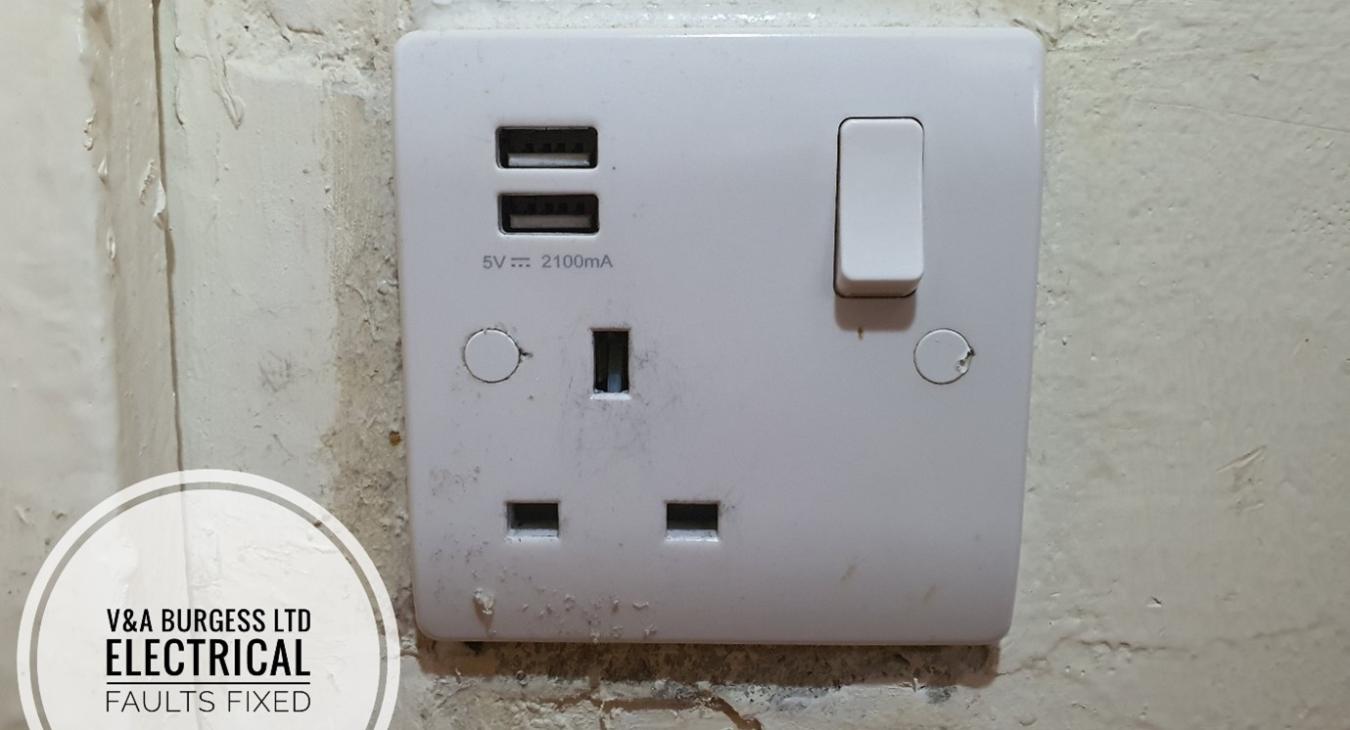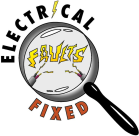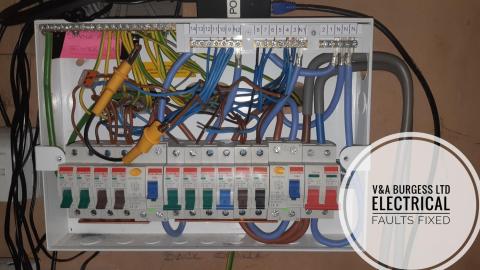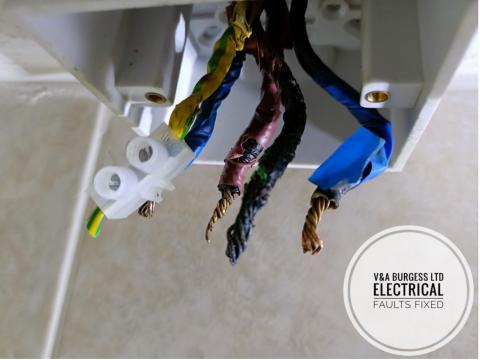
Table of Contents
1) I have no sockets in Warrington, help! 🆘
First thing is first, do not panic. In the first instance you need to figure out how many sockets are not working. A good way to do this is to take a small lamp around the house with you and try the lamp in each socket to see if the lamp turns on.
Go and find your fuse box / consumer unit. This is the electrical box with all the trip switches in that controls your electrical supply in your home. When you have found this box, are there any switches down? Double check.
Back to top2) If there are switches down, will they push back on?
If you have a really old fuse box then you may not have switches and instead will have fuse carriers with either wire or fuses installed. It may be easier to get an electrician now if this is the case.
For more help with tripping switches, please see our helpsheet section. The information on this website has been produced for YOU, our customers, to help you get things back up and running again. 😊
https://www.electricalfaultsfixed.co.uk/helpsheets-downloads
Back to top3) What makes sockets stop working?
There are a number of issues that could mean your sockets have stopped working.
Loose wires on certain circuits can mean that some or all of the sockets in your home will stop working. They can be loose anywhere on the circuit and affect the whole circuit. Loose wires are very dangerous and can cause fire so these types of issue need to be investigated without delay.
Fuse board/ Consumer unit problems can cause sockets to stop working. Faulty circuit breakers, blown fuses, faulty trip switches and loose internal connections can all make your sockets stop working. Sometimes you will see a switch that has tripped and other times you may see nothing at all.
Faulty appliances can cause the consumer unit to trip or blow. Faulty sockets can blow and pop causing circuit failure. If you have no sockets working then it may well be a faulty appliance.
Old or damaged wires can cause sockets to stop working. Whilst copper wiring has a long life span, it is not designed to last forever and as such can eventually fail. An emergency electrician specialising in testing and inspection can usually find these problems within a couple of hours or so.
Rodents or other external factors can affect the cabling in your home. Rodents love to chew on electrical cables so its advisable to deal with any rodent problems immediately to prevent damage happening to your electrical system. Water ingress can play havoc with wiring and electrical systems also so check your garden for any electrics and potential ingress points.
Back to top4) Do plug sockets have fuses?
Most plug sockets in the UK are not fused. There are some sockets out there that are fused to 13 amps and these tend to be socket converters that have changed a single or double socket front into a 3 or 4 way extension lead type socket that fits to the wall. These give the illusion of a 3 or 4 way socket and can be useful but care should be taken not to overload them. If you find you have “NO SOCKETS IN WARRINGTON” then it may be worth checking the fuse on these types of socket to see if it has blown.
Most plug tops in the UK are fused however. There are many different ratings of fuse that can be installed in plug tops to protect cabling to appliances and the typical ratings are 3 amps (690 watts), 5 amps (1150 watts) and 13 amps (2990 watts). Generally smaller electrical items like lamps, laptops, battery chargers, televisions and fans are protected by a 3 amp fuse although they may well use far less power than this.
Back to top5) How much power can sockets give out? ⚡
Typically single and double sockets are rated to 13 amps maximum. Care must be taken not to overload a plug socket. Overloading is easy to do expecially in a kitchen environment. Typically a dishwasher, washing machine, tumble dryer and other appliances will use up to 13 amps each and combined in a double socket, can easily overload and burn out the socket.
Heavy power using appliances should ideally have their own single 13 amp socket and / or be controlled by a 20 amp dual pole (turns off line and neutral) switch. 😊
Back to top6) How many sockets can I have in my house? 💯
You can have eleventy billion sockets in your house if you want. Typically the more sockets you have the better as there are no extension leads that can become overloaded, less trailing wires and therefore trip hazards and just more general convenience. Just because there may be lots and lots of sockets does not mean that the electrical installation cannot cope with them. Any power supply design problems should have been worked out when the electrical installation was first put in or rewired and the consumer unit should be set up to cope with this, adding further sockets is not normally an issue.
The best course of action is to speak with a trustworthy professional electrician and get their advice on what is possible. Any electrical work will need to be compliant with the latest edition of the BS7671 wiring regulations and necessary building regulations.
Back to top7) How much does it cost to fix my problem? 💳
When you have “NO SOCKETS IN WARRINGTON” as we have discussed, there could be a variety of problems happening in your home and as such, a quote to repair the installation would be a complete guess until some fault finding and inspection work has been carried out. The costs for this will vary between electricians but our costs can be found on our emergency electrician page.
https://www.electricalfaultsfixed.co.uk/emergency-electrician
We cover between Liverpool and Leigh, Woolton and Warrington. Between us we have you covered. 😊
7.1) Our contact info:
📧 Fill in our contact form here.
Back to top










